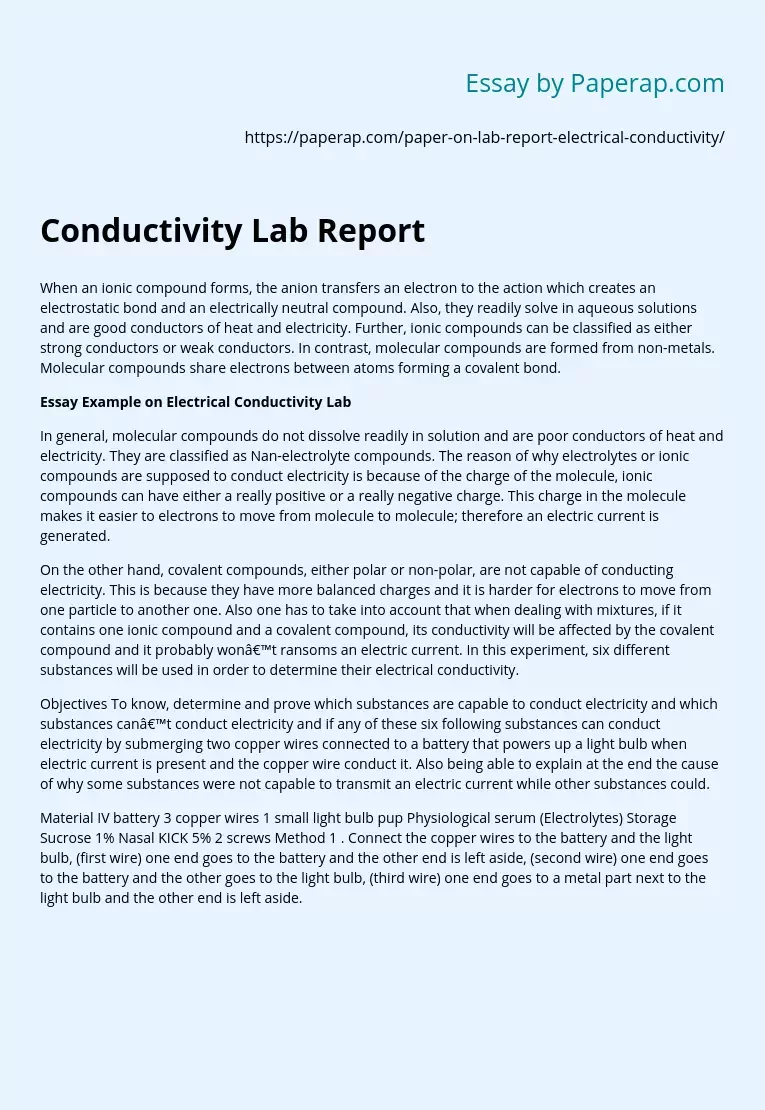Conductivity Lab Report
When an ionic compound forms, the anion transfers an electron to the action which creates an electrostatic bond and an electrically neutral compound. Also, they readily solve in aqueous solutions and are good conductors of heat and electricity.
Further, ionic compounds can be classified as either strong conductors or weak conductors. In contrast, molecular compounds are formed from non-metals. Molecular compounds share electrons between atoms forming a covalent bond.
Essay Example on Electrical Conductivity Lab
In general, molecular compounds do not dissolve readily in solution and are poor conductors of heat and electricity. They are classified as Nan-electrolyte compounds. The reason of why electrolytes or ionic compounds are supposed to conduct electricity is because of the charge of the molecule, ionic compounds can have either a really positive or a really negative charge. This charge in the molecule makes it easier to electrons to move from molecule to molecule; therefore an electric current is generated.
On the other hand, covalent compounds, either polar or non-polar, are not capable of conducting electricity.
This is because they have more balanced charges and it is harder for electrons to move from one particle to another one. Also one has to take into account that when dealing with mixtures, if it contains one ionic compound and a covalent compound, its conductivity will be affected by the covalent compound and it probably won’t ransoms an electric current. In this experiment, six different substances will be used in order to determine their electrical conductivity.
Objectives To know, determine and prove which substances are capable to conduct electricity and which substances can’t conduct electricity and if any of these six following substances can conduct electricity by submerging two copper wires connected to a battery that powers up a light bulb when electric current is present and the copper wire conduct it.
Also being able to explain at the end the cause of why some substances were not capable to transmit an electric current while other substances could.
Material IV battery 3 copper wires 1 small light bulb pup Physiological serum (Electrolytes) Storage Sucrose 1% Nasal KICK 5% 2 screws Method 1 . Connect the copper wires to the battery and the light bulb, (first wire) one end goes to the battery and the other end is left aside, (second wire) one end goes to the battery and the other goes to the light bulb, (third wire) one end goes to a metal part next to the light bulb and the other end is left aside.
Conductivity Lab Report. (2019, Nov 27). Retrieved from https://paperap.com/paper-on-lab-report-electrical-conductivity/

